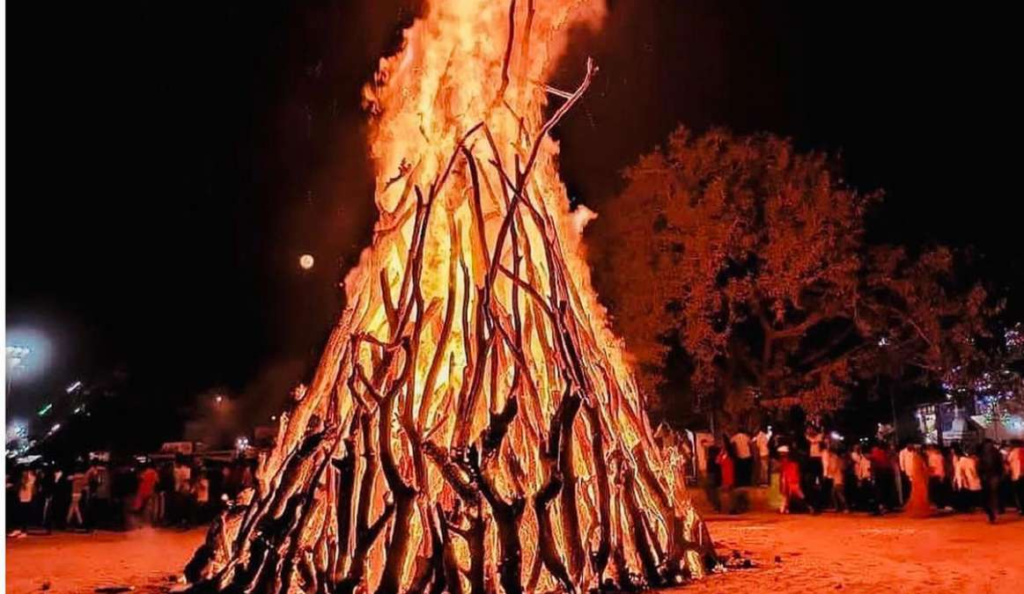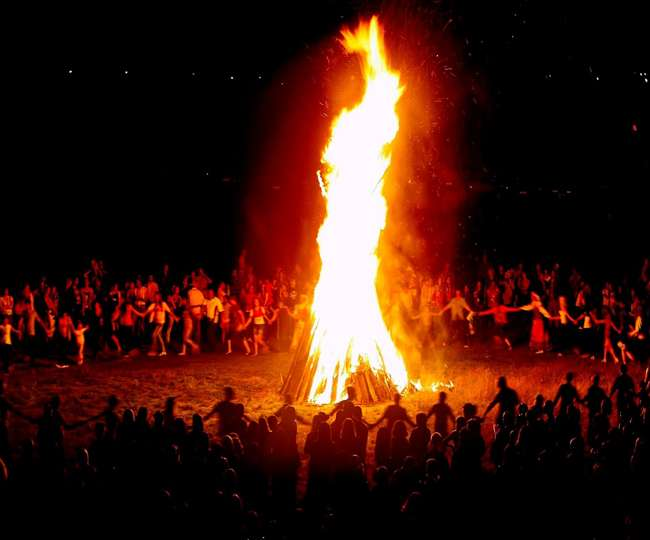Holika Dahan, celebrated with great enthusiasm in Hindu communities, involves the burning of a symbolic bonfire to commemorate the triumph of good over evil. Amidst the rituals and festivities, one aspect often overlooked is the importance of the ashes left behind after the bonfire. Let’s delve into the significance of Holika Dahan ashes and why they hold a special place in this ancient tradition.

The Ashes of Holika Dahan:
After the bonfire of Holika Dahan subsides, what remains are the ashes—a tangible reminder of the fervor and symbolism of the celebration. These ashes, often collected by devotees, carry spiritual, cultural, and even practical significance.
Spiritual Significance:
Purification: In Hindu tradition, fire is considered purifying. The ashes of Holika Dahan are believed to carry the essence of this purifying energy. Collecting and applying these ashes is believed to cleanse one’s aura and surroundings of negativity and impurities.
Symbol of Transformation: Just as fire transforms wood into ashes, Holika Dahan symbolizes the transformative power of faith and devotion. The ashes represent the culmination of this transformation—a reminder that even amidst destruction, there is the potential for renewal and growth.
Connection to Divinity: Some devotees view the ashes of Holika Dahan as sacred remnants imbued with divine blessings. Applying these ashes or keeping them in one’s home is believed to invite the presence and protection of the divine into one’s life.
Cultural Significance:

Tradition and Heritage: The tradition of collecting Holika Dahan ashes has been passed down through generations, deeply ingrained in Hindu culture and heritage. It serves as a tangible link to ancestral customs and rituals, fostering a sense of continuity and connection with the past.
Symbol of Unity: In many communities, the ashes of Holika Dahan are shared among neighbors and relatives, symbolizing unity and camaraderie. It’s a gesture of goodwill and solidarity, reinforcing bonds of kinship and community.
Remembrance: Keeping the ashes of Holika Dahan is also a way to commemorate the festival and the values it represents—courage, righteousness, and the triumph of good over evil. It’s a tangible reminder of the lessons learned and the blessings received during this auspicious time.
Practical Significance:
Medicinal and Protective Properties: In some folk traditions, the ashes of Holika Dahan are believed to have medicinal and protective properties. They are applied topically or consumed in small quantities as a remedy for various ailments or as a safeguard against negative influences.
Agricultural Use: In rural areas, the ashes of Holika Dahan are sometimes scattered in fields or mixed with soil as a natural fertilizer. It’s believed to enhance soil fertility and promote healthy crop growth, aligning with ancient agricultural practices.
Environmental Sustainability: The ashes of Holika Dahan, being biodegradable and natural, pose no harm to the environment. They can be safely disposed of or used in eco-friendly ways, contributing to sustainable living practices.
Conclusion:
The ashes of Holika Dahan may seem like simple remnants of a festive bonfire, but they carry deep spiritual, cultural, and practical significance. As devotees collect and cherish these ashes, they honor tradition, invoke divine blessings, and connect with their cultural heritage. Whether used for spiritual purification, agricultural enhancement, or medicinal purposes, the ashes of Holika Dahan serve as a tangible reminder of the enduring values and teachings of this ancient festival.
